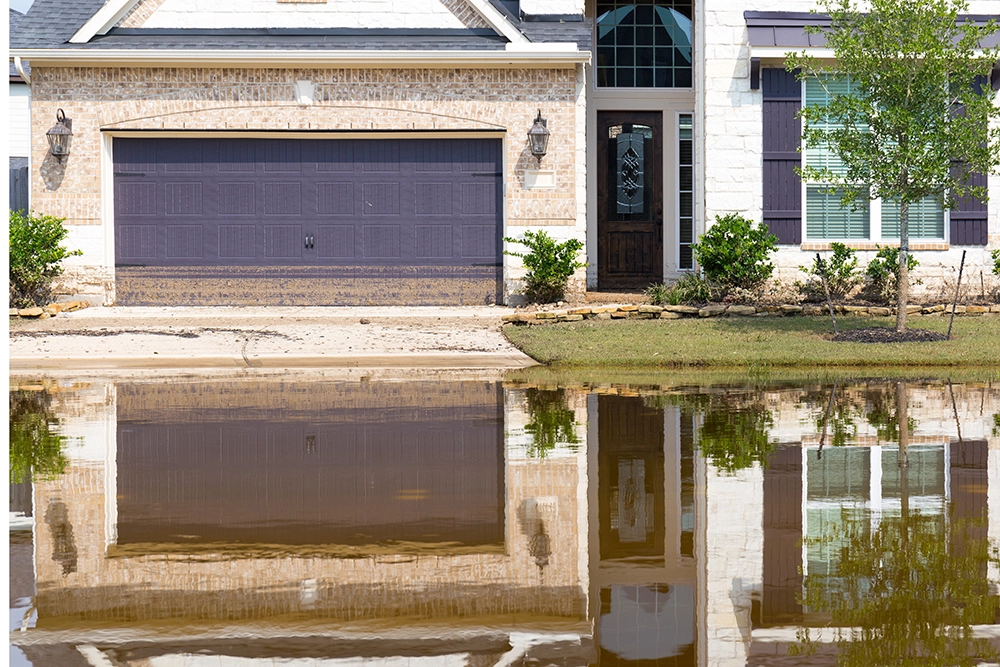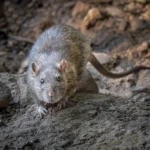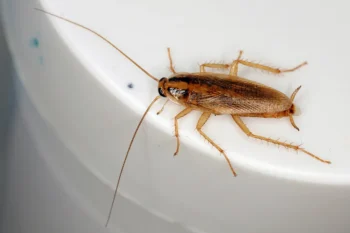
Severe flooding can drive pests right into your home. Rats, cockroaches, flies, and mosquitoes thrive in damp environments and reproduce rapidly when given the chance. If not addressed promptly, the problem can worsen and pose serious health risks.
When outdoor shelters are destroyed, pests turn to homes as their new refuge. They carry bacteria, spread illnesses, and leave behind bites that cause irritation and discomfort. Some pests may also contaminate food supplies, adding another layer of concern. Taking immediate cleaning measures and seeking pest control support are key steps to prevention.
Rely on Bug Out for expert solutions to stop pests when floodwaters rise.
Why Your Home Attracts Pests After a Flood
After floodwaters recede, stagnant water and scattered debris create perfect conditions for pest breeding. The moisture and rot speed up reproduction, and what starts small can quickly grow into an infestation. Fast pest control is key to prevention, while inaction risks drawing rodents looking for food and shelter.
Flood-driven pests squeeze inside through weakened entry points like cracks, vents, and gaps. Sewer backups contribute bacteria and additional invaders that worsen the issue. Basements with standing water or clutter are at the highest risk, making careful checks necessary. Continued monitoring after cleanup helps catch problems early.
The Pests Most Commonly Seen After Flooding
Floodwaters often displace pests, sending them into homes in search of shelter. Once settled indoors, they feed and reproduce rapidly, making infestations more likely. Among the pests most commonly found after floods are:
Rats
When floods hit, rats are forced from sewers, fields, and outdoor shelters into residential and commercial properties. Thanks to their ability to squeeze through gaps, entry is alarmingly easy. Left untreated, their numbers can explode, posing serious risks to health and structures.
Indoors, rats leave urine and droppings on counters, pantries, and other surfaces where food is handled. They can also chew through food packaging, spoiling supplies in the process. As carriers of diseases such as leptospirosis and hantavirus, they present a clear danger, so immediate action is necessary.
Cockroaches
Flooding forces cockroaches out of their usual hiding spots, driving them indoors through sewers, vents, and small cracks. Their ability to survive underwater helps them spread quickly, and infestations often demand multiple treatments to get under control. This resilience makes them one of the hardest pests to eliminate after storms.
Inside homes, cockroaches contaminate food, countertops, and storage areas with droppings and bacteria. Children are especially at risk, as exposure has been linked to asthma flare-ups and allergic reactions. These pests can also trigger stress and anxiety for families already coping with flood cleanup.
Mosquitoes
Flooding leaves behind stagnant water in places like tires, buckets, and low-lying yards, all of which are ideal mosquito breeding sites. Since eggs hatch quickly, swarms can form in just days, turning small issues into hazardous infestations. Clearing debris and draining water is one of the simplest and most effective prevention steps.
Mosquitoes are far more than a nuisance. They transmit dangerous diseases like dengue and malaria, and their bites often cause itching or allergic reactions. In large numbers, they can make outdoor spaces nearly unusable, highlighting the importance of consistent mosquito control to protect your family.
Flies
Once floodwaters recede, they leave behind soggy debris, organic waste, and trash that rapidly attract flies. These conditions fuel explosive population growth, making untreated areas breeding hubs. Without intervention, infestations can spread across entire neighborhoods.
Flies carry pathogens from garbage to household spaces, contaminating food and everyday surfaces. This often results in stomach problems, foodborne diseases, and other infections for residents. The elderly and young children are particularly at risk, as their immune systems are less able to handle repeated exposure.
The Health Risks Posed by Pests After Flooding
Flood aftermath often leaves standing water and debris that can encourage pests to multiply. These intrusions can pose considerable health challenges for your family. Key health risks to consider include:
- Respiratory Problems: Exposure to mold and pest droppings in damp or poorly ventilated spaces can worsen existing breathing conditions and trigger new respiratory issues.
- Mosquito-Borne Diseases: Mosquitoes that thrive in flood-affected areas can transmit illnesses such as dengue and malaria through their bites.
- Diarrhea & Cholera: Germs carried by flies and contaminated water increase the risk of gastrointestinal infections, including diarrhea and cholera.
- Leptospirosis: Contact with rat urine, which can contaminate water and surfaces, poses serious health risks and can lead to leptospirosis infection.
Flood Preparation Tips for Your Home
Floodwaters significantly increase the likelihood of pests invading your home. Pools of water, damp conditions, and leftover debris create ideal environments for rodents, insects, and other intruders to thrive. Take these steps to protect your home and basement:
- Seal Openings: Check that all doors, windows, vents, and cracks are tightly closed or sealed. This helps create a reliable barrier against pests trying to enter during floods.
- Secure Food: Store all food in airtight containers to prevent contamination and make your home less attractive to pests. Proper storage also limits the opportunities for pests to feed during a flood.
- Pest Inspections: Arrange a pre-flood inspection with a pest control professional. Identifying potential issues early allows for treatment before infestations can take hold.
- Yard Maintenance: Clear debris, clean gutters, and keep your yard organized. A well-maintained outdoor space discourages rodents and reduces standing water where mosquitoes may breed.
- Elevate Belongings: Lift furniture, electronics, and other valuables off the floor. Elevating items minimizes hiding places and helps prevent pests from settling during flood conditions.
Steps to Protect Your Home from Pests After a Flood
Prompt action after a flood is essential to prevent pests and bacteria from invading your home. Standing water and leftover debris create ideal conditions for infestations and health hazards. Use these steps to protect your home and family:
- Clean Immediately: Remove mud, leftover food, and debris that could attract flies and cockroaches. Disinfect all surfaces exposed to floodwater to reduce bacteria and minimize contamination risks.
- Deal With Flies: Empty trash daily and ensure all bins are tightly sealed. Use fly traps as needed and dispose of decaying organic material promptly to prevent fly infestations from developing.
- Rat and Cockroach Control: Seal cracks, holes, and gaps in basements and foundations to block pest entry. Store food securely or remove exposed items to make your home less appealing to rats and cockroaches.
- Mosquito Control: Eliminate standing water quickly to prevent mosquitoes from breeding. Clean gutters, treat damp areas such as basements, and use screens or bed nets to protect living spaces from bites.
Stop Flood-Driven Pests in Their Tracks with Bug Out
Rats, cockroaches, mosquitoes, and other pests appearing after flood cleanup are a warning that an infestation may be forming. These invaders reproduce at an alarming pace and can contaminate food and damage structures. Left unchecked, they can quickly take over your home, posing serious health risks. Timely action is critical to stop them before the problem escalates.
Bug Out provides thorough, customized pest control solutions. Our team inspects your property, applies treatments suited to your needs, and monitors results for lasting success. We also educate homeowners on preventive strategies to keep infestations from recurring.
Get in touch with Bug Out for reliable pest control solutions today.





